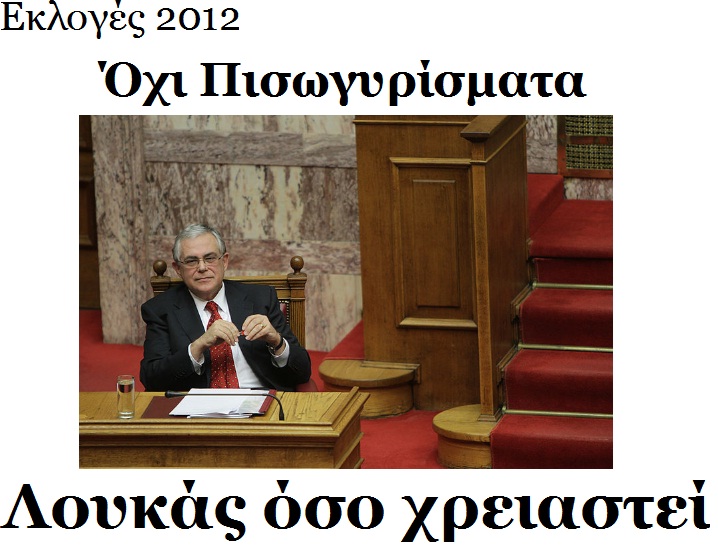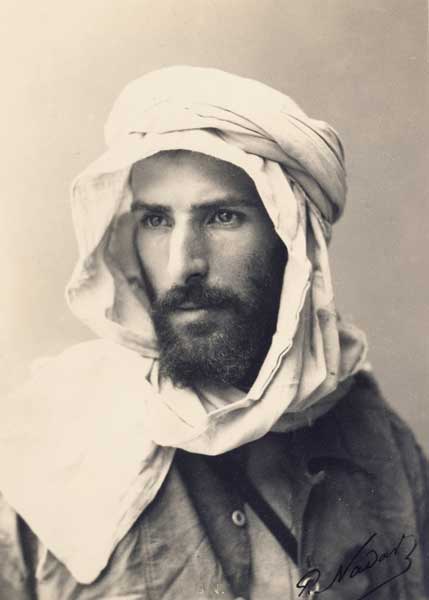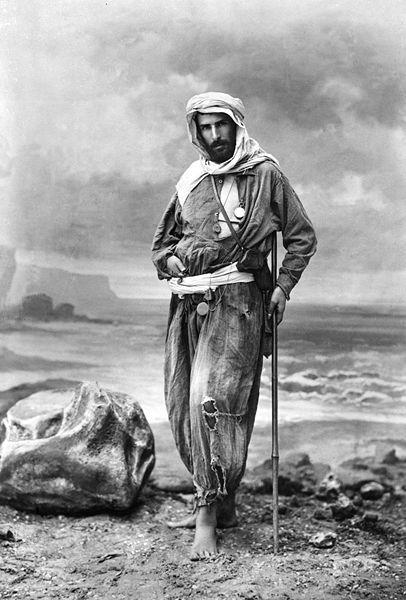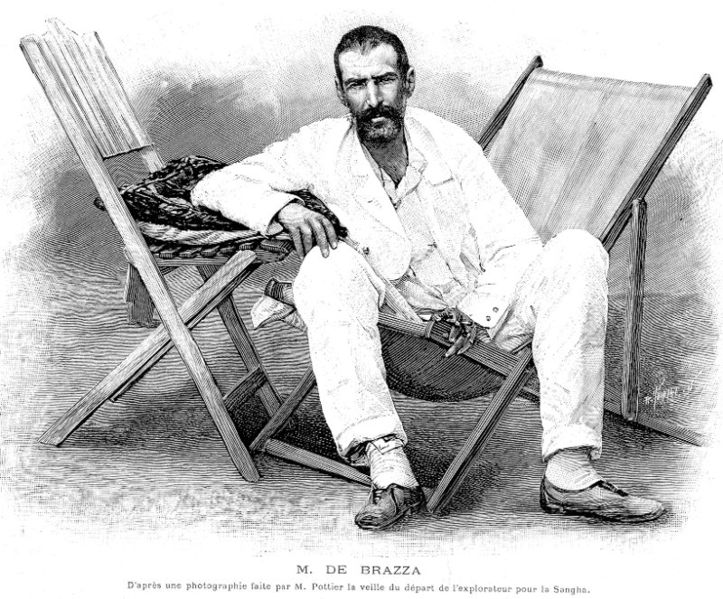<Back to Index>
- Explorer Pierre Paul François Camille Savorgnan de Brazza, 1852
- Painter Cornelis Theodorus Maria van Dongen, 1877
- General Secretary of the Romanian Communist Party Nicolae Ceauşescu, 1918
PAGE SPONSOR



Pietro Paolo Savorgnan di Brazzà, best known as Pierre Paul François Camille Savorgnan de Brazza (January 26, 1852 - September 14, 1905), was a Franco - Italian explorer, born in Italy and later naturalized Frenchman. With the backing of the Société de Géographie de Paris, he opened up for France entry along the right bank of the Congo that eventually led to French colonies in Central Africa. His easy manner and great physical charm, as well as his pacific approach among Africans, were his trademarks. Under French colonial rule, Brazzaville, the capital of the Republic of the Congo was named in his honor.
Born in Rome on January 26, 1852, Pietro Savorgnan di Brazzà was the seventh son of Count Ascanio Savorgnan di Brazzà, a nobleman of Udine with many French connections and Giacinta Simonetti. Pietro was interested in exploration from an early age and won entry to the French naval school at Brest, graduated as an ensign, and went on the French ship Jeanne d'Arc to Algeria. His next ship was the Venus, which stopped at Gabon regularly, and in 1874, de Brazza made two trips, up the Gabon River and Ogoue River (Ogowe River). He then proposed to the government that he explore the Ogoue to its source, and with the help of friends in high places, including Jules Ferry and Leon Gambetta, he secured partial funding, the rest coming out of his own pocket. He also became a naturalized French citizen at this time, adopting the French spelling of his name.
In his expedition, which lasted from 1875 – 1878, armed with cotton textiles and tools to use for barter, accompanied by Noel Ballay, a doctor, Alfred Marche, a naturalist, a sailor, thirteen Senegalese laptots and four local interpreters, Brazza charmed and talked his way deep inland.
The French authorized a second mission, 1879 - 1882. By following the Ogoue River upstream and proceeding overland to the Lefini River and then downstream, Brazza succeeded in reaching the Congo River in 1880 without encroaching on Portuguese claims. He then proposed to King Makoko of the Batekes that he place his kingdom under the protection of the French flag. Makoko, interested in trade possibilities and in gaining an edge over his rivals, signed the treaty. Makoko also arranged for the establishment of a French settlement at Mfoa on the Congo's Malebo Pool, a place later known as Brazzaville; after Brazza's departure, the outpost was manned by two laptots under the command of Senegalese Sergeant Malamine Camara, whose resourcefulness had impressed Brazza during their several months trekking inland from the coast.
In 1886, Brazza was named governor - general of the French Congo. Journalists' reports of the contrast between the decent wages and humane conditions there, contrasted with the personal regime of Belgian King Léopold on the opposite bank, in the Congo Free State, made him some important enemies, and a mounting smear campaign in the French press led to his dismissal in 1898. By 1905, he was asked to look into the colonial conditions, which had deteriorated during his absence, but the National Assembly voted to suppress his embarrassing report, a copy of which was found amongst his personal effects after his death. He died suddenly of a fever at Dakar. There were rumors that he had been poisoned. The epitaph for his burial site in Algiers reads, "une mémoire pure de sang humain" ("a memory untainted by human blood").
A mausoleum has been built in his honor in Brazzaville. On 30 September 2006, his remains were exhumed in Algiers to be reinterred in Brazzaville on 3 October, along with those of his wife and four children. The
decision to honor Pierre de Brazza as a founding father of the Republic
of the Congo has elicited protests among many Congolese. Mwinda Press,
the journal of the Association of Congolese Democrats in France wrote
articles quoting Théophile Obenga who
depicted Pierre de Brazza as a colonizer and not a humanist, declaring
him to have raped a Congolese woman, a princess and the equivalent of a Vestal Virgin, and to have pillaged villages, raising highly charged questions as to
why the colonizer should be revered as a national hero instead of the
Congolese who fought against colonization.
